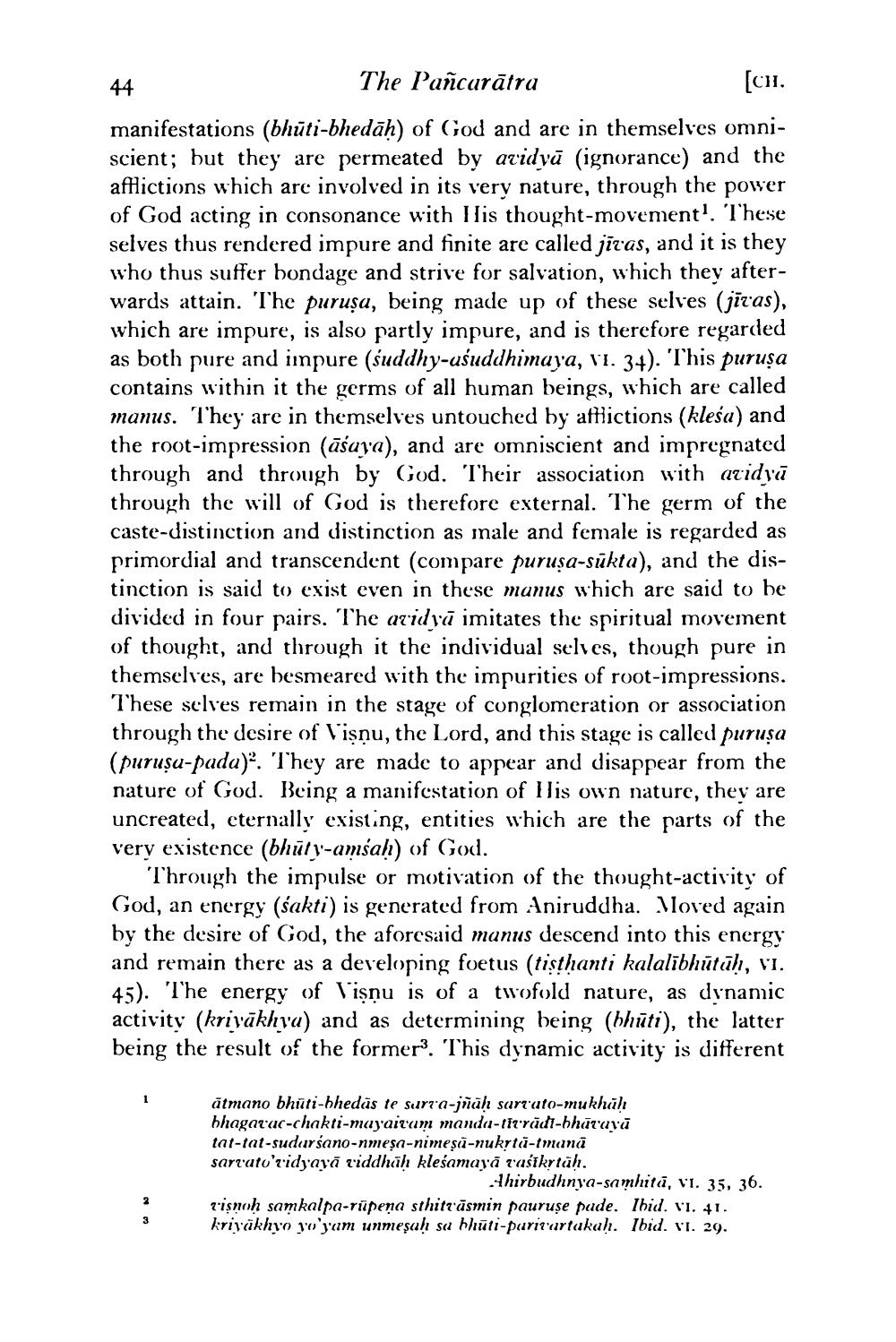________________
44 The Pañcurātra
[CH. manifestations (bhūti-bhedāḥ) of God and are in themselves omniscient; but they are permeated by avidyā (ignorance) and the afflictions which are involved in its very nature, through the power of God acting in consonance with His thought-movement!. These selves thus rendered impure and finite are called jīras, and it is they who thus suffer bondage and strive for salvation, which they afterwards attain. The puruşa, being made up of these selves (jiras), which are impure, is also partly impure, and is therefore regarded as both pure and impure (suddhy-uśuddhimaya, 11. 34). This purusa contains within it the germs of all human beings, which are called manus. They are in themselves untouched by afflictions (klesa) and the root-impression (āśaya), and are omniscient and impregnated through and through by God. Their association with avidya through the will of God is therefore external. The germ of the caste-distinction and distinction as male and female is regarded as primordial and transcendent (compare purusa-sūkta), and the distinction is said to exist even in these manus which are said to be divided in four pairs. The acidyā imitates the spiritual movement of thought, and through it the individual selves, though pure in themselves, are besmeared with the impurities of root-impressions. These selves remain in the stage of conglomeration or association through the desire of Visnu, the Lord, and this stage is called purusa (puruşu-pada)”. They are made to appear and disappear from the nature of God. Being a manifestation of His own nature, they are uncreated, eternally existing, entities which are the parts of the very existence (bhūli-amsal) of God.
Through the impulse or motivation of the thought-activity of God, an energy (sakti) is generated from Aniruddha. Voved again by the desire of God, the aforesaid manus descend into this energy and remain there as a developing foetus (tisthanti kalalībhūtāḥ, vi. 45). The energy of Vişnu is of a twofold nature, as dynamic activity (krivākhya) and as determining being (bhūti), the latter being the result of the former?. This dynamic activity is different
ātmano bhūti-bhedās te surt'a-jnah sartuto-mukhah bhagatuc-chakti-mayaitum manda-11e'rādi-bhūtuva tat-tat-sudursano-nmeşa-nimeșa-nukytu-tmana sariato'ridyavā ciddhah klesamayā tasikytäh.
thirbudhnya-samhitā, vi. 35, 36. tisnoh samkalpa-rūpena sthittāsmin pauruse pude. Ibid. vi. 41. kriyakhyo yo'yam unmeşah sa bhūti-puritartukah. Ibid. vi. 29.




